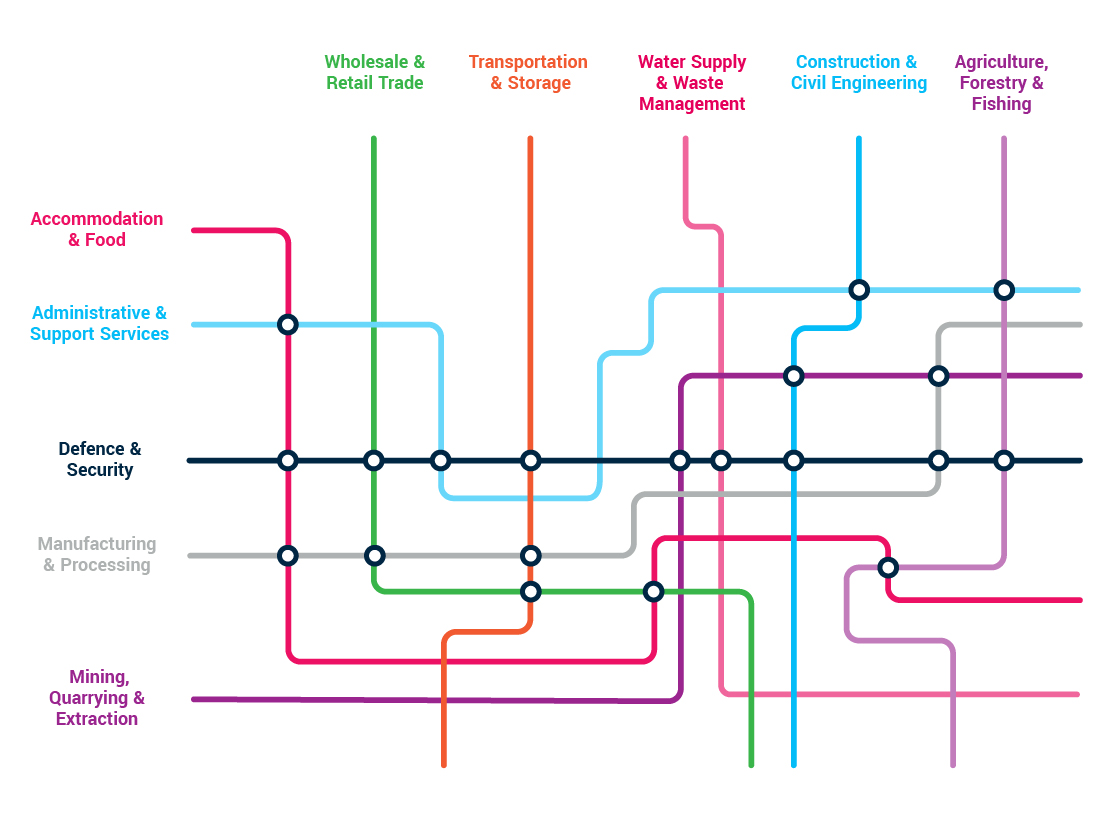Summary
As part of our QinetiQ Collaborate event series, last week saw us host a virtual event on the topic of Tackling Modern Slavery, where we invited a number of organisations from our supply chain to participate in an open and honest discussion around approaches to mitigating the risk of Modern Slavery and Human Trafficking in our collective supply network.
About Modern Slavery
Modern slavery is the exploitation of people for personal or commercial gain with victims being controlled through violence or threats, forced into inescapable debt, or have had their passport taken away and are being threatened with deportation.
It is estimated that 40 million people are trapped in modern slavery worldwide and over 10,000 victims were identified in the UK in 2019 alone*.
Industry Network
Modern slavery is a complex problem and we believe that collaboration and transparency are the key to driving change. Creating a trusted environment where we can learn from each other will strengthen all of us.
Despite the severity of this subject, it is not uncommon for organisations or individuals to fail to draw a link between their own industry and the risk of Modern Slavery and Human Trafficking (it happens “elsewhere”). Like many relationships, our industries do not operate in isolation, and often connect to a variety of other industries through common products, services and suppliers often layered through complex supply chains. Within our sector of Defence & Security, we are connected through our supply chain to industries which may, on paper, be at higher risk to Modern Slavery and Human Trafficking and therefore it is imperative we continue to take action in preventing such risks from materialising within our own sector.
To visually illustrate the industry-bridges in which Modern Slavery may pose a risk, we featured a number of sectors on the ‘tube map’ diagram below. The ‘train lines’ demonstrate the exposure and crossing of paths with other industries, while the ‘stations’ represent strong industry relationships.
Taking some of the industries from the tube map, the image below explores some example cases of Modern Slavery, some as recent as during the COVID-19 global pandemic, showing the severity of the issue around the world. Sources for these examples can be found at the bottom of this blog.
About the Event
The event took place under Chatham House rules, which enabled attendees to share openly around their approaches and challenges. Andrew Wallis OBE, CEO of Unseen provided a summary of the latest developments from Governments globally on Modern Slavery and Human Trafficking, and shared insight into the increased focus on Modern Slavery by the Investor community and the negative impact the last 12 months during COVID has had. The event then turned to three Modern Slavery Stories from three QinetiQ Suppliers from differing industries to share the journeys on Tackling Modern Slavery, sharing their successes and challenges. The event closed following a discussion on approaches to defining and mitigating Modern Slavery and Human Trafficking risk.
Our Approach
Our annual statement which is issued on behalf of QinetiQ Group, sets out the measures QinetiQ Group takes to prevent slavery and human trafficking in our business and supply chain. Modern Slavery is widespread, effecting all sectors and territories and we are committed to responsible business conduct, and believe that slavery is not acceptable within our business and our supply chain. In the last year, we have introduced a three year Modern Slavery Action plan to drive continuous sustainable improvement in our approach to Modern Slavery.
Sources:
* 40 million people are trapped in Modern Slavery
* 10,000 victims of Modern Slavery in the UK
* Anti-Slavery website
Modern Slavery Cases:
Agriculture, Forestry & Fishing - Source
Mining, Quarrying & Extraction - Source
Manufacturing & Processing - Source
Water Supply & Waste Management - Source
Construction & Civil Engineering - Source
Wholesale & Retail Trade - Source
Transportation & Storage - Source

